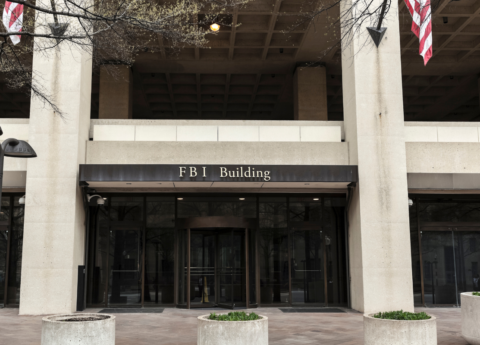Senate Bill (SB) 36, sponsored by Senator Whitney Westerfield, would eliminate a provision in Kentucky law mandating that children charged with certain felony offenses be prosecuted as adults, rather than as juveniles. The current law limits the discretion of prosecutors and judges in such cases, which hurts too many Kentucky children while failing to protect communities.
Kentucky’s mandatory transfer provision needs to be eliminated
Laws that mandate the transfer of children to adult court were first passed in Kentucky and across the country in the late 1990s and early 2000s as a misdirected attempt to address violent crime. Since then, a great deal of research has shown that prosecuting children as adults is harmful, costly and does not lead to safer communities. As a result of this research, and in an effort to focus more heavily on rehabilitation and treatment of children involved in the justice system, states have been reconsidering and amending juvenile transfer laws.
Under existing law, there are two ways children can be transferred from juvenile court to adult court in Kentucky:
- Discretionary transfers occur when the county attorney, after consultation with the commonwealth’s attorney, makes a motion to transfer a child. In considering the motion, the judge is required to review each specific case, and makes a determination based on the unique circumstances of the child and the case. Facts and circumstances the judge is required to consider include the seriousness and type of offense, maturity of the child, the child’s prior record, the child’s and community’s best interests, prospects of adequate public protection, the likelihood of reasonable rehabilitation and evidence of the child’s participation in a gang.
- Mandatory transfers require the transfer of any child who is at least 14 years of age who is charged with any felony in which a firearm, whether operational or not, was used. This can include a situation where the child did not have or use a firearm, but was with someone who did possess or use a gun. The mandatory transfer occurs without any action by the county attorney or review of the unique circumstances of the case by the judge. In fact, the judge has no say at all, and cannot stop a mandatory transfer even if the facts and circumstances indicate that the child should remain in juvenile court.
SB 36 takes an important step in the right direction by eliminating the mandatory/automatic transfer of children to adult court, instead making any transfer discretionary, based on the specific facts and circumstances of the case.
Transfer of youth to adult court is harmful
Significant research confirms that the transfer of children to adult court actually reduces community safety and results in numerous harms to those children as they face more severe punishments than in the juvenile system. One study found that children prosecuted as adults in Florida were 34% more likely to commit additional felony offenses on average than children who committed a similar initial offense but remained in the juvenile system. Research has also found that transferring juveniles to the adult system generally increases, rather than decreases, rates of violence for these youth. Meanwhile, research does not indicate that harsh transfer laws deter juveniles from committing crimes.
The collateral consequences of a felony conviction are well understood, and impact an individual’s employment, housing, health and more. Youth transferred to adult court have worse economic outcomes later in life than those remaining in the juvenile system. Further, children who receive a felony conviction in adult court have a felony record that is much harder to expunge than a juvenile record.
Automatic transfer reflects and perpetuates racial inequity in juvenile justice
While racial inequities are prevalent in the Kentucky juvenile justice system, implementing SB 36 could be a small step in closing those inequities by reducing the disproportionate number of Black youth transferred to adult court. According to a recent report, Black youth represent 57% of youth transferred to adult court despite being 11% of the statewide juvenile population. The inequities are even starker in Jefferson County, where most of the state’s Black youth transferred to adult court are located. While Black youth represent 27% of Jefferson County’s population under the age of 18, they accounted for 93% of the children charged as adults between 2016 and 2018.
Racial inequity is rife across the juvenile justice system. According to a recent report from The Sentencing Project, Black youth in Kentucky are nearly five times more likely to be incarcerated than white youth. Kentucky has taken important steps to reform the juvenile justice system such as through SB 200 (2014), which greatly reduced the number of Kentucky youth who are incarcerated. However, at the same time racial inequities within the system became more pronounced.
While Kentucky has a long way to go in addressing racially disparate outcomes in juvenile justice, SB 36 begins to address the problem by leading to fewer Black youth being tried as adults.
SB 36 would be a positive step
Because transferred youth are more likely to end up incarcerated as adults, SB 36 could play a role in reducing incarceration in the state at a time when the number of people in jails and prisons (and the costs to counties for housing them) remains high. Mandatory transfer laws harm children and our communities, and they do not make Kentucky safer. The General Assembly should remove this ineffective and harmful law by passing SB 36.




